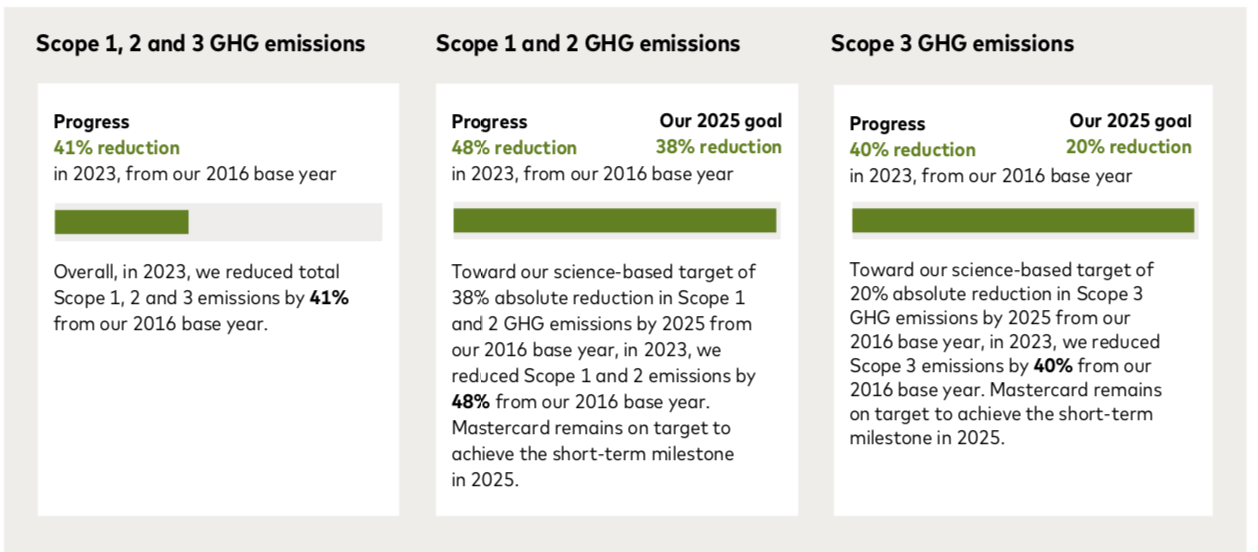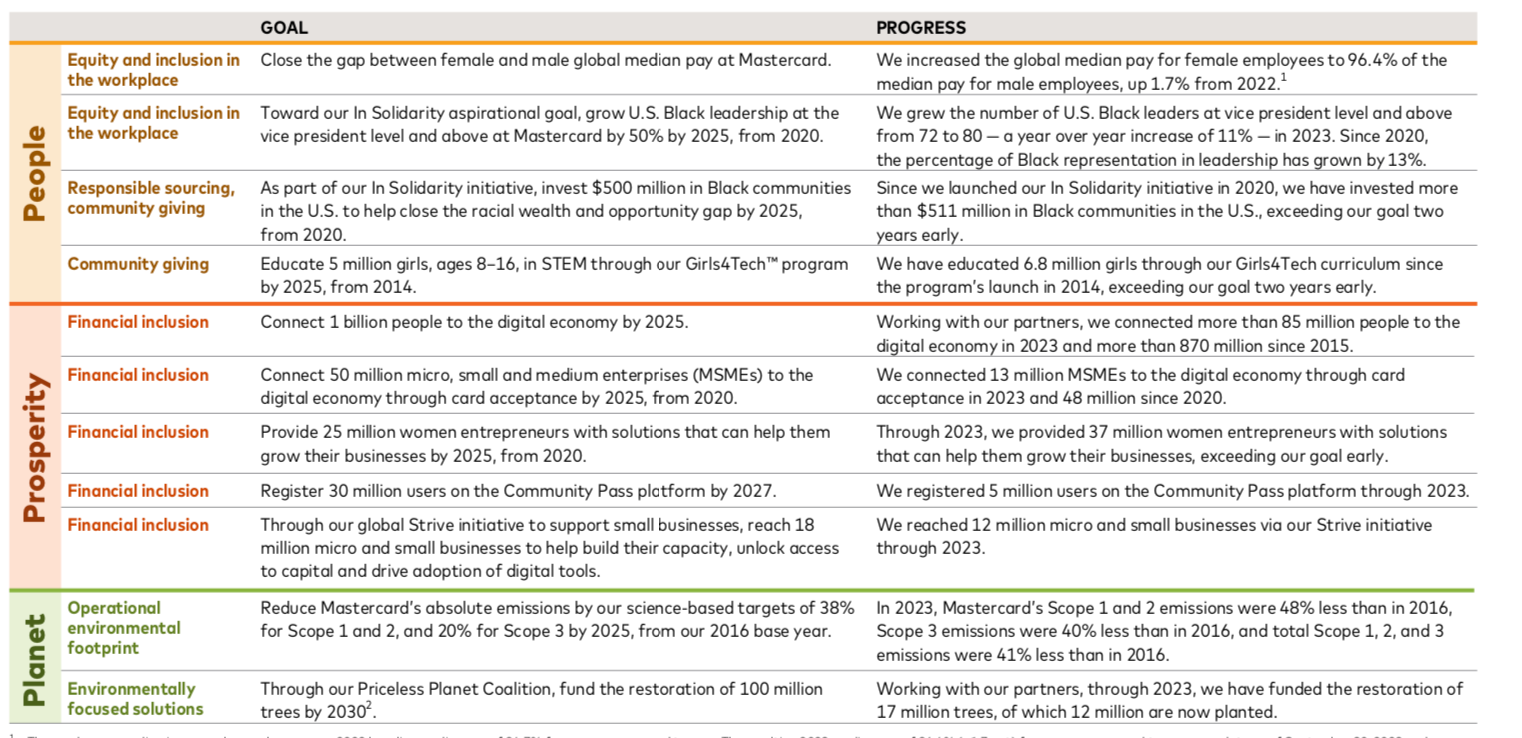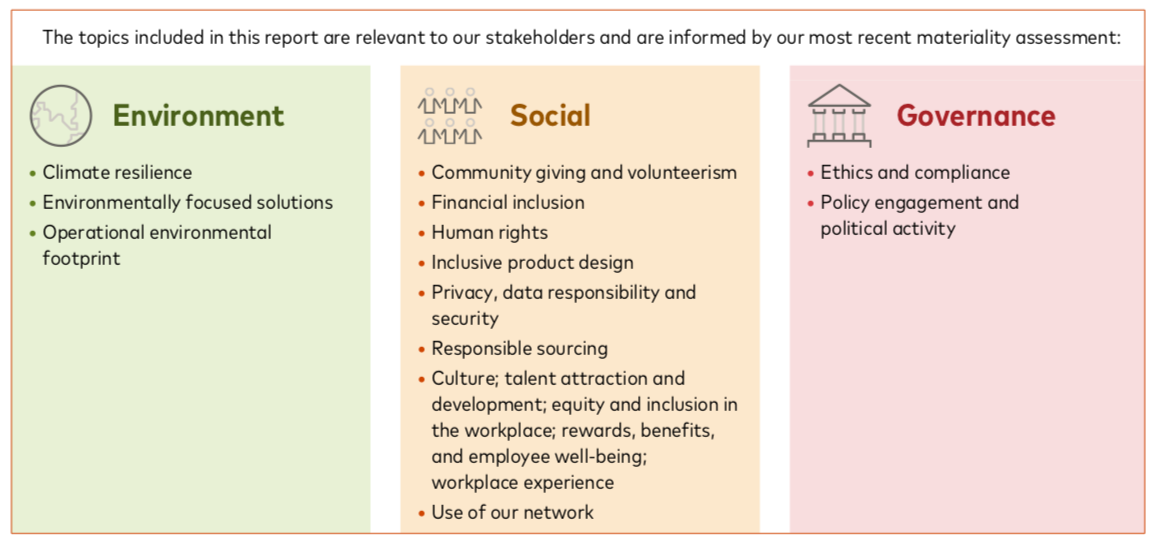CEF Lead Executives
-
ELLEN JACKOWSKIItem Link
Chief Sustainability Officer and EVP
In 2021, GreenBiz named Ellen one of the Top 25 Badass Women of Climate Action. Ellen is a member of the board of directors for the Silicon Valley Leadership Group, serves on the advisory board of the Ocean Plastics Leadership Network, is a deputy advisor on the World Economic Forum’s Champions for Nature community, is the Executive Sponsor for the Black Employee Impact Network, Palo Alto Chapter, and has served as a faculty member of The Prince of Wales’s Business & Sustainability Programme at the University of Cambridge. Ellen has a Bachelor of Science degree from Northwestern University and is based in Palo Alto, California.
-
BRIAN FINCHItem Link
VP, ESG Governance and Reporting
Brian is responsible for accelerating performance on ESG issues and other strategic initiatives. Previously, Brian was Director of Business Transformation at AmeriCorps. Prior to that, Brian founded and served as SVP for Strategic Initiatives at the Greater Washington Partnership, an action-oriented civic alliance of CEOs from leading employers and entrepreneurs in the Baltimore-to-Richmond super-region, focused on addressing issues for the public good. Prior to his time in the public and non-profit sectors, Brian served as Executive Director for Corporate Social Responsibility and Global Philanthropy at JPMorgan Chase & Co. Earlier in his career, Brian led the company’s legislative and regulatory advocacy efforts in several U.S. states including California. Brian received his BA from Georgetown University and his MBA from Northwestern’s Kellogg School of Management. He resides in Washington, D.C. with his wife Lori and three daughters.
-
DAVID EICHBERGItem Link
VP, ESG Strategy
David has over 15 years of experience in the corporate sustainability space. In his previous role as Global Head of Climate Strategy at HP, David oversaw sustainability goals and metrics, climate strategy, and sustainability and ESG assessments. David has led programs for communications, social investment, technology and thought leadership showcases, sustainability valuation, and strategic collaborations with non-profit and NGO partners such as Conservation International, NBA Cares and the World Wildlife Fund. Previously, David worked at Business for Social Responsibility, Applied Communications and the U.S. Congress Office of Technology Assessment. David holds a Master’s degree in public and international affairs from the University of Pittsburgh and a B.A. from the University of California, Berkeley.
-
ALPANA MITTALItem Link
Sustainability Director
Alpana is a Sustainability Director at Mastercard, leading ESG reporting and disclosures. She brings 18 years of experience, with more than a decade specializing in driving social impact and maximizing business value through inclusive growth, equitable grantmaking, and sustainability strategies. Her areas of expertise include ESG impact management and reporting, designing and leading signature CSR programs, and operating corporate foundations. She holds an MBA from Wharton and a graduate certificate in Sustainability.
-
ERIN GOODHANDItem Link
Director of Sustainability
Erin focuses on the integration of Mastercard's global ESG strategy into the business through customer facing solutions and initiatives, such as the Priceless Planet Coalition, which aims to restore 100 million trees with 100+ partners globally. She also leads the company’s global employee empowerment program for ESG to foster a culture of impact. With more than 15 years at both venture-backed tech startups and Fortune 500 companies, Erin has extensive experience driving programs at the intersection of invation and social impact across complex and highly regulated industries, such as education, healthcare and finance.
-
RONALD "TREY" MENVILLEItem Link
Manager, ESG Strategy and Reporting
Trey has spent the last five years working at Mastercard, supporting various aspects of its commitment to sustainability and ESG. His focus areas have included, target-setting and adjustment, including the linkage of all-employee compensation to ESG targets, Scope 3 and supply chain emissions, renewable energy procurement, ESG ratings and rankings, and various other aspects of ESG strategy and analysis. Currently, Trey is working on and excited about the solutions companies are bringing to bear in the area of promoting sustainable consumption. Trey holds a Bachelors of the Arts in Political Economy from Tulane University, and a Masters of Science in Sustainability Management from Columbia University. Trey lives in New York City and welcomes any restaurant recommendations you may have.
-
ASHLEY JOSEPHItem Link
Net Zero Program Manager
Ashley is based remotely out of San Francisco, supporting the company’s journey to net zero by 2040 as a program manager for the Environmental Sustainability team. Ashley oversees strategy development and implementation of emission reduction projects, monitor and report performance, and drive continuous improvement through stakeholder engagement as we continue
to adapt and make progress towards net zero. Long story short - she supports operationalizing the “E” in ESG.
Latest Sustainability Reporting
2023 Environmental, Social and Governance Report
(April 2024)
Highlights
- In 2023, reduced Scope 1 and 2 emissions by 48% and Scope 3 emissions by 40% (2016 baseline), with 91% of suppliers reporting to CDP on Scope 3 emissions, up 13% over 2022.
- Reduced total emissions 1% in 2023 over 2022, while experiencing 13% growth in net revenue.
- In 2023, used 100% renewable energy for operations for the seventh consecutive year.
- Invested over $511 million in Black communities in the U.S. since launching its In Solidarity initiative in 2020, exceeding its 2025 goal two years early.
- Grew the number of U.S. Black leaders at vice president level and above by a year-over-year increase of 11% in 2023.
- Increased global median pay for female employees to 96.4% of median pay for male employees, up 1.7% from 2022.
- Educated 6.8 million girls through its Girls4Tech curriculum since the program’s launch in 2014, exceeding its 2025 goal of educating five million girls two years early.
- Provided 37 million women entrepreneurs with solutions to help them grow their businesses, surpassing the company’s 2025 goal of 25 million.
- Spent over $100 million on Black-owned suppliers for the third consecutive year (surpassing its 2025 goal).

Recent News
2024
NEWSWEEK / STATISTA — Published its America’s Most Responsible Companies 2025 list, ranking 600 U.S. companies (out of the 2,000 largest publicly traded companies) on ESG performance. The analysis is based on 30 key performance indicators along with consumer reputation. Merck scored #1, with 97.83 points (out of 100). CEF members in the top 50 include: General Mills (#2), Applied Materials (#4), HP (#6), Mastercard (#7), Hewlett Packard Enterprise (#9), Ecolab (#12), Analog Devices (#13), Qualcomm (#29), Cisco Systems (#31), Visa (#33), CBRE (#35), Apple (#42), and General Motors (#50). (Dec 2024)
TIME / STATISTA — Announced their World’s Most Sustainable Companies of 2024 list, based on companies’ climate targets and ratings, Scope 1 and 2 emissions and reductions in 2021 and 2022, energy use, and if they have incorporated sustainability into their business models. CEF Member companies in the Top 20 included: Schneider Electric (#1); Siemens (#11); Mastercard (#13); SAP (#15); and HP (#20). (July 2024)
The Global Media Sustainability Framework (Global Alliance for Responsible Media (GARM) and Ad Net Zero) — This first-of-its-kind framework enables advertisers, media owners, and agencies to measure greenhouse gas emissions, with the aim of reducing their carbon impacts. It includes formulas for digital, television, and out of home advertising (with print, audio, and cinema to follow), as well as data request and disclosure forms. It is supported by 30 companies, including CEF members Google, Mastercard, Meta, and Unilever. The next phase will be to establish an efficient system to transfer emissions data between buyers and sellers (with validation of media GHG data). Uptake and adoption will be tracked, with the first results published in Q2 of 2025. (June 2024)
2023
Launched a new recycling effort in the UK, in which expired cards will be collected and shredded at select HSBC branches, transported, and then recycled by TerraCycle. (June 2023)
Announced that the company will accelerate efforts to remove first-use PVC plastics from its payment cards by 2028. From then, Mastercard plastic payment cards will be made from more sustainable materials, including recycled or bio-sourced plastics, and approved through a certification program. This is a first for a payment network. The company will work with its issuers and card manufacturers to transition more than 168 million cards across its network. (April 2023)
The Open for Business Coalition, made up of 34 global companies, denounced anti-LGBTQ legislation passed by Uganda's parliament last week, warning it would curb investment flows, deter tourists, undermine companies’ ability to hire a diverse workforce, and damage the country's economy. The legislation criminalizes identifying as gay, lesbian, bisexual, transgender or queer, and imposes the death penalty for “aggravated homosexuality.” The coalition includes CEF members Dow, Google, JP Morgan Chase, Mastercard, McKinsey & Co., Meta, Microsoft, and Unilever. (April 2023)
2022
NEWSWEEK / STATISTA — Released its “America’s Most Responsible Companies 2023” list, which ranks 500 of the U.S. largest public companies based on their ESG performance. The top 50 include CEF members: HP (#1), Qualcomm (#13), Microsoft (#17), Cisco (#19), Hewlett Packard Enterprise (#34), Walt Disney (#39), Mastercard (#40), and Ecolab (#46). (Dec 2022)
The U.S. Department of Commerce and the Office of the U.S. Trade Representative launched the Indo-Pacific Economic Framework for Prosperity (IPEF) Upskilling Initiative, a public-private endeavor to support training and education in digital skills for women and girls in 8 countries, including Brunei, Fiji, India, Indonesia, Malaysia, the Philippines, Thailand, and Vietnam. Fourteen U.S. companies, including CEF members Amazon, Apple, Cisco, Dell Technologies, Google, HP, Mastercard, Microsoft, and Visa, will each provide 500,000 or more digital upskilling opportunities by 2032, such as providing training in data science, cyber-security, AI, and robotics; providing female small business owners with toolkits to help with website planning, social media, and marketing; and supporting digital leadership and entrepreneurship training in rural areas. (Sept 2022)
Announced that bonuses for all employees, not just for executives, would be determined by the company’s “performance on three ESG priorities: carbon neutrality, financial inclusion and gender pay parity.” It also expanded the scope of its Priceless Planet Coalition, adding 15 new restoration areas across six continents with the goal of restoring 100 million trees by 2025. (April 2022)
2021
Algorithmic Bias Safeguards for Workforce (the Data & Trust Alliance) — A new set of criteria and educational resources to help companies in the alliance “mitigate data and algorithmic bias” in HR and workforce decisions, and evaluate vendors’ “commitment to algorithmic safety.” 13 companies in the alliance will adopt the Safeguards, including CEF members General Motors, Mastercard, and Meta. (Dec 2021)
1.5°C Supplier Engagement Guide (1.5°C Supply Chain Leaders /
Exponential Roadmap Initiative)
—
A
new online platform with open-source tools, case studies, and resources
to help businesses engage with their suppliers to halve GHG emissions by 2030. CEF members
Google, Oracle,
Mastercard, Microsoft, and
Unilever
belong to the Exponential Roadmap Initiative, the last three of which also belong to 1.5°C Supply Chain Leaders.
(Nov 2021)
MORE »
MORE 2 »
Announced that its
Carbon Calculator—created with
Doconomy and embedded in Mastercard’s global network earlier this year—will be adopted by certain financial institutions and fintechs across Europe and Latin America.
(Nov 2021)
MORE »
Accelerated its net-zero commitment from 2050 to
2040. (Nov 2021)
MORE »
Mastercard is
launching a global Sustainability Innovation Lab in Stockholm to create digital products and solutions using technologies such as AI and 5G, with a focus on enabling sustainable consumer spending and supply chain visibility and traceability. The Lab includes an
R&D center, a
“Labs as a Service” platform, and an Experience Center for product demos and in-person engagement. R&D is already underway, initially prioritizing iterations of the
Mastercard Carbon Calculator and
Mastercard Provenance, and the physical space will open in spring 2022. (Sept 2021)
MORE »
Climate Fintech: Cards & Payments Challenge — A new program was created by
New Energy Nexus
to
accelerate fintech startups’ climate innovation in the digital payments space. The winner will receive $100,000, with the 10 finalists receiving additional mentorship and fast-tracked acceptance for the
Mastercard Start Path selection phase.
Barclays, Doconomy, Mastercard,
Patch, and
Rise
will provide application programming interfaces (APIs) for challenge participants. (Sept 2021)
MORE »
Nearly 100 leaders of companies, associations, and organizations—including CEF members
Facebook, Microsoft, Apple, Hewlett Packard Enterprise, Amazon, Alphabet, General Motors, Mastercard, HP Inc., Cisco,
and
TPG Capital—sent a letter urging Congress to pass legislation to create a pathway to citizenship for the “Dreamers”—who would benefit from the Deferred Action for Childhood Arrivals program. The leaders were organized by the
Coalition for the American Dream. (Aug 2021)
MORE »
“Every Action Counts” Coalition — A mix of banking firms, digital platforms, and consumer-facing organizations
have joined to encourage 1 billion consumers around the world to use their spending to fund sustainability and conservation efforts. The alliance, which includes
BBVA, FNZ, the Lazada Group
and Mastercard, was launched by the
Green Digital Finance Alliance
and is funded by the
MAVA Foundation Finance for Biodiversity initiative. (July 2021)
MORE »
RE100
— The RE100 companies, which are committed to 100% renewable electricity, now have an electricity demand greater than that of the U.K. or Italy and are on track to save CO2 emissions equal to burning over 118 million tons of coal per year. RE100 members include
CEF Members:
3M, Apple, Bank of America, Bloomberg, Dell Technologies, Ecolab, Facebook, General Motors, Google, Hewlett Packard Enterprise, HP Inc., Johnson & Johnson, JPMorgan Chase & Co., Mastercard, McKinsey & Co., Microsoft, Morgan Stanley, PepsiCo, Procter & Gamble, Siemens AG, TD Bank Group, Trane Technologies, Unilever,
and Visa.
(July 2021)
MORE »
Developed a
new credit card label to enable consumers to identify cards made from more sustainable materials; an independent, first-of-its-kind card-certification program
that assesses sustainability claims; and a card-recycling program—in partnership with
Giesecke + Devrient—which can be tailored to material, issuer, and market needs. (July 2021)
MORE »
The Biden administration announced a “Call to Action” for businesses and social enterprises to make new commitments to support inclusive economic development in Central America, as part of efforts to sustainably address the root causes of migration. Founding participants include
Mastercard, which pledged to help 5 million people in the region access banking services and digitize 1 million small businesses; and
Microsoft, which promised to expand internet access to up to 3 million people by July 2022 and create digital skill-building community centers for women and young people. (June 2021)
MORE »
MORE 2 »
Introduced the Wildlife Impact Card program allowing consumers to support the protection of wildlife habitats. For every card purchased, it plans to donate $1 to Conservation International to help protect and restore up to 40 million hectares of landscape and 4.5 million square kilometers of seascape by 2030. (May 2021)
Second Chance Business Coalition — A cross-sector coalition of 29 large US employers committed to expanding second chance hiring and advancement practices for people with criminal records. Co-chaired by JPMorgan Chase CEO Jamie Dimon and Eaton CEO Craig Arnold, members include Bank of America, Cisco, GM, JPMorgan & Chase, Mastercard, McDonald’s, Microsoft, P&G, PepsiCo, and Visa. (May 2021)
Mastercard Carbon Calculator (Mastercard and Doconomy) — Enables banks to equip consumers with carbon footprint data and insights to help inform consumer spending and offer ways to contribute to reforestation through the Priceless Planet Coalition. (April 2021)
Hundreds of executives, nonprofits, and companies—including Amazon, Apple, Bank of America, BlackRock, Cisco, Dell Technologies, Facebook, Ford, General Motors, Google, JetBlue, Johnson & Johnson, Mastercard, and McKinsey & Co.—signed a public statement opposing “any discriminatory legislation.” The statement, titled “We Stand for Democracy,” was featured in advertisements in the New York Times and The Washington Post. (April 2021)
More than 300 businesses representing over $3 trillion in annual revenue and employing nearly 6 million US workers signed an open letter calling upon President Biden to adopt a GHG emissions reduction target of at least 50% by 2030 (2005 baseline). Organized by the We Mean Business coalition and Ceres, signatories of the letter included: Apple, Dell Technologies, Facebook, Google, Hewlett Packard Enterprise, HP, Johnson & Johnson, Mastercard, McDonald’s, Microsoft, Siemens, Trane Technologies, Unilever, and VF Corporation. (April 2021)
Announced plans to link executive compensation (EVPs and above) to ESG initiatives and three global ESG priorities: carbon neutrality, financial inclusion, and gender pay parity. (March 2021)
Unveiled the first-ever credit card created to advance women in the economy in a new partnership with Seneca Women and Deserve. Cardholders will get 3% cashback for shopping at one of the million women-owned businesses included in the Seneca Women Marketplace. The Card will also help drive donations to women-focused nonprofits. (March 2021)
Mastercard issued a ten-year $600 million sustainability bond to advance its carbon reduction, support environmental choices for customers, and foster inclusive growth in its communities. (March 2021)
Over 170 CEOs from U.S. companies issued a public letter to Congress backing President Biden’s $1.9 trillion coronavirus relief package and urged rapid, bipartisan adoption. CEF member companies involved included BlackRock, Comcast, Google, JetBlue, Mastercard, Morgan Stanley, Siemens, and Visa. (March 2021)
Ethisphere released its 2021 list of the World’s Most Ethical Companies. CEF members recognized include (March 2021):
- 3M
- ADM
- Aptiv
- CBRE
- Dell Technologies
- Ecolab
- General Motors
- HanesBrands
- Hewlett Packard Enterprise
- Honeywell
- HP
- International Paper
- Kaiser Permanente
- Kimberly-Clark
- Mastercard
- Microsoft
- PepsiCo
- VF Corporation
- Visa
- Waste Management
Mastercard pledged to become net-zero by 2050, and will focus initially on two priority areas: decarbonizing its own operations and leading on supplier sustainability. (January 2021)
Over 60 companies committed to the Stakeholder Capitalism Metrics, an ESG reporting and disclosure framework developed by the WEF and its International Business Council that consists of 21 core and 34 expanded metrics. Companies pledging to implement this reporting framework include Bank of America, Dell Technologies, Dow, Ecolab, Fidelity International, HP, Mastercard, McKinsey & Co., Siemens, and Unilever. (January 2021)
The World Economic Forum
launched Partnering for Racial Justice in Business Initiative, a new coalition to build more equitable and just workplaces. Three steps required to join the initiative include: 1)
Racial and ethnic equity must be placed
on the board’s agenda; 2) Companies must
make at least one commitment towards racial and ethnic justice in their organizations; 3) Companies must put a
long-term strategy in place towards
becoming an anti-racist organization. Founding members include
Bank of America, BlackRock, Bloomberg, Cisco Systems, Facebook, Google, HP, Johnson & Johnson, Kaiser Permanente, Mastercard, McKinsey & Company, Microsoft, PepsiCo, Procter & Gamble, Unilever,
and UPS.
(January 2021)
MORE
»
The World Economic Forum
launched
the Essential Digital Infrastructure and Services Network (EDISON) Alliance to accelerate
digital inclusion, address inequality, and connect critical sectors of the economy. This is the
first global cross-sector Alliance focused on digital equality and includes
Google, Mastercard,
and Verizon.
(January 2021)
MORE
»
2020
Mastercard launched a new sustainable card program to make it easier for financial institutions to issue cards made from recyclable, bio-sourced, chlorine-free, degradable, and ocean plastics. To date, more than 60 financial institutions have issued cards made from these more sustainable alternatives. (July 2020)
Interview with Mastercard CEO Ajay Banga: "How Mastercard’s CEO is working toward financial inclusion during the pandemic" (Fortune "Leadership Next" series, May 2020)
Mastercard pledged to bring 1 billion people and 50 million micro and small businesses into the digital economy by 2025. As part of this effort, the company will focus on providing 25 million women entrepreneurs with solutions that can help them grow their businesses. (May 2020)
Mastercard has partnered with The Bill & Melinda Gates Foundation and nonprofit organization Wellcome to provide $125 million in seed funding to “speed-up the response to the COVID-19 epidemic by identifying, assessing, developing, and scaling-up treatments.” (March 2020)
Included again on Ethisphere 2020 list of the World’s Most Ethical Companies, after also being named to the list in 2019. (March 2020)
Mastercard launched the Priceless Planet Coalition, a platform to “unite corporate sustainability efforts and make meaningful investments to preserve the environment.” As part of the platform, the company and its nine partner organizations — including Citibank, L.L. Bean, New York Metropolitan Transportation Authority, and American Airlines — have pledged to plant 100 million trees in 5 years. (Jan 2020)
2019
Mastercard CEO joined a group of CEOs from more than 70 companies and union leaders, representing 12.5 million workers, signed a joint statement calling for the United States to stay in the Paris Agreement. (Dec 2019)
Mastercard has partnered with Levi Strauss & Co., Marks & Spencer and VF Corporation to test a hybrid payment solution in Egypt and Cambodia that enables factories to pay garment workers digitally. The global effort aims to “improve the wellbeing of factory workers who currently lack access to the financial tools and services that can help them and their families thrive.” (Oct 2019)
A coalition of 17 companies — including Google, Mastercard, Microsoft, and Unilever — have joined forces to amplify the important role of business action in achieving the Sustainable Development Goals by 2030. (Sep 2019)
Ranked #2 on Fortune annual "Change the World" ranking of 52 companies that are advancing sustainable business innovation as part of their profit-making strategy. (Aug 2019)
One of 120 companies out of over 5,500 analyzed to be recognized on CDP’s Supplier Engagement leaderboard (in CDP “Global Supply Chain Report 2019”) for their work with suppliers to reduce emissions and lower environmental risks in the supply chain. (Feb 2019)
How can we help? Please reach out to us!
Laura Keenan, Chair
laura@corporateecoforum.com | (617) 921-2307
Amy O’Meara, Executive Director
amy@corporateecoforum.com | (857) 222-8270
Mike Rama, Deputy Director
mike@corporateecoforum.com | (607) 287-9236
Margaret Zamoyta, Program Lead
margaret@corporateecoforum.com I (917) 678-4161
MR Rangaswami, Founder



